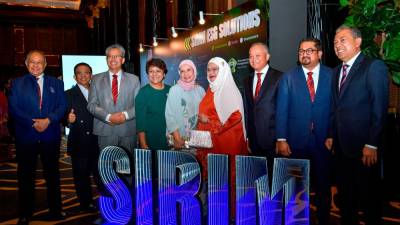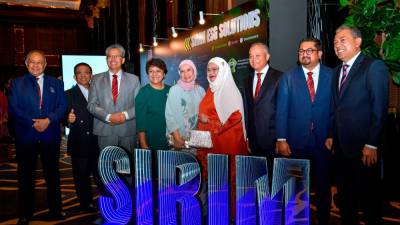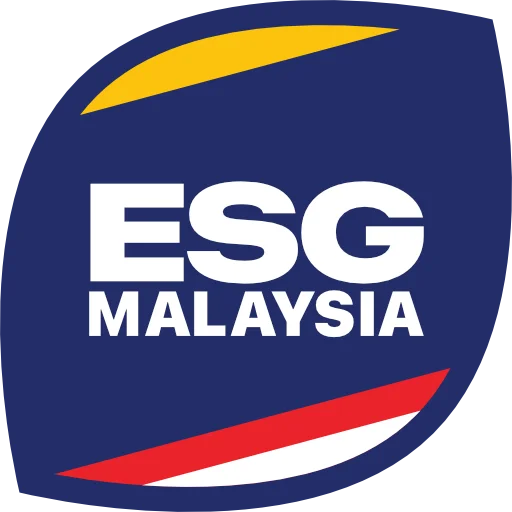SIRIM launches SIRIM ESG Holistic Ecosystem to accelerate ESG practices among industries


KUALA LUMPUR: SIRIM Berhad (SIRIM) launched its ESG Holistic Ecosystem yesterday, a forward-thinking initiative aimed at supporting and accelerating environmental, social and governance (ESG) practices among Malaysian industries.
The ecosystem is designed to empower businesses to achieve sustainability goals and contribute meaningfully to both national and global environmental objectives.
SIRIM Berhad chairman Datuk Khairol Anuar Mohamad Tawi said the ecosystem acts as a pivotal solution in positioning Malaysia as a leader in sustainable and responsible practices.
He said the ecosystem is not only about compliance but also about enabling industries to thrive on a global scale by embracing sustainable growth and innovation.
“Through rigorous certification, training and advance testing capabilities, SIRIM’s role extends far beyond certifications; we are empowering companies with a ‘passport for prosperity’, enabling them to thrive in a market that values ESG integrity and competitiveness.
“By investing in this ecosystem, we are preparing our industries to succeed in the global market and proudly uphold Malaysia’s place on the World Competitiveness Index,“ he said when met during the Majlis SIRIM Industri 2024 held at Sunway Resort Hotel in Petaling Jaya yesterday.
Majlis SIRIM Industri 2024, themed ‘ESG: 50 Years of Change’, is an annual event focused on strengthening relationships and collaboration between SIRIM, the industry and government agencies, as well as recognising organisations and companies that received certifications from SIRIM QAS International Sdn Bhd in 2023.
Also present at the event were the Investment, Trade and Industry Ministry’s (MITI) deputy secretary general (Investment and Management) Datuk Bahria Mohd Tamil and SIRIM Berhad president and group chief executive officer Datuk Dr Ahmad Sabirin Ahmad.
Earlier in his welcoming remarks, Khairol Anuar noted that SIRIM is assisting MITI with the implementation of the Smart Tech Up programme which aims to establish 3,000 smart factories by 2030.
“Priority sectors will be electrical and electronics, chemicals, medical devices, aerospace and pharmaceuticals, in alignment with the New Industrial Master Plan 2030 (NIMP 2030),“ he added.
Meanwhile, Khairol Anuar said that SIRIM’s Data Centre Guidelines have been completed and submitted to MITI for consideration.
He also said data centres have large environmental footprints and as such, it is important to ensure that the country balances its data centres’ investments with its net zero ambitions.
“Our data centre guidelines ensure that data centres address aspects such as effective cooling technology, obtaining power from renewable energy sources, and maximising energy efficiency in line with the NIMP 2030,” he added.
